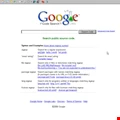Infosecurity News
Internet Explorer zero-day code goes public
The Internet Explorer exploit code used in the Operation Aurora attack against Google and other technology companies has made it into the public domain, and has been incorporated into the Metasploit penetration testing tool, it was revealed this weekend.
Internal security risks webinar this Wednesday
The internal security risk issue is fast becoming a boardroom topic in most organizations, especially now that relatively rare road warriors have given way to a truly mobile workforce, able to work from almost anywhere, in most businesses.
Conservative party outlines plans on cybersecurity
The Conservative party has published a green paper which, amongst other items of national security, seeks to create a center to deal with cyberattacks against the UK.
Time Inc employee fired over customer credit card issue
Time Inc has written to customers and the New Hampshire Attorney General's office, warning of a potential security breach following the possible misuse of customer credit card information by an employee.
Blackhats and whitehats react to Haiti tragedy
Blackhats and whitehats reacted with typical polarity to the disastrous Haiti earthquake this week. One faction unleashed a torrent of malware capitalizing on the tragedy, while the other organized a series of 'hackathons' to help develop technologies that would assist the humanitarian mission.

Online criminals looking to profit from Haiti earthquake
Proving that there is no situation too tragic to exploit, cyber scofflaws have been quick to capitalize on the world’s interest in the recent earthquake in Haiti. With so many people looking to reach out and donate to victims of the tragedy, one group of black hats are attempting to rake in some of that cash by exploiting search engine optimization (SEO) techniques.

Google - China attack episode: Is Microsoft to blame?
A complex attack on the Google Gmail accounts of human rights activitists – apparently from hackers based in China – has now been indirectly blamed on Microsoft, after McAfee Labs announced last night that the attacks appear to exploit a little-known vulnerability in Microsoft Internet Explorer.
Employees increasingly found to be downloading illegal files
As if companies have not had enough IT security headaches already, it seems that a growing number of firms have problems with their staff illegally downloading copyrighted files whilst at work.
DARPA enters second leg of cybersecurity testing project
The Defense Advanced Research Projects Agency, or DARPA, has awarded $55.5m in contracts to bolster a secretive cybersecurity monitoring system, it was announced this week.
Internet Explorer vulnerability used in Google attack
More details are emerging concerning the concerted attacks on over 20 technology companies, including Google, that were revealed earlier this week. The attackers targeted a vulnerability in Internet Explorer, according to Microsoft. It is now investigating the flaw, which could allow attackers to execute arbitrary code.
Unprotected enterprise end point rising, despite security scares
A study into remote working carried out by Check Point Software Technologies has found that, despite a significant rise in the numbers of remote workers, only 27% of organisations use encryption to protect their corporate data.
Mobile security demand being driven by encryption
Research just released claims to show that demand for mobile security technology is being driven by encryption in all its various forms.
Facebook and McAfee team up on security
Facebook has signed McAfee as a supplier to help protect its user base. The two companies have worked on a custom scanning and repair tool, along with education materials that will target the social networking giant's 350 million users.
Employees downloading more illegal files
Software as a service company ScanSafe has found a 55% increase in illegal download attempts over corporate networks.
3G encryption cracked in less than two hours
In a jaw-dropping piece of research, a trio of researchers have published a paper explaining how the A5/3 encryption system – which is being phased in on many 3G cellular networks around the world – can be cracked in less than two hours.
Maryland seeking to become a cybersecurity hub
The Governor of Maryland set out an aggressive campaign to position the state as a national hub for cybersecurity this week, launching a report cataloging Maryland's current efforts in the cybersecurity and electronic intelligence space.
Suffolk County National Bank hacked
Suffolk County National Bank received a nasty Christmas present on December 24th after discovering a hack that saw over 8,000 customers' accounts compromised. The breach is estimated to have cost $351 000, it warned investors.
Sophos warns over rogue Amazon delivery emails containing malware attachments
It seems that hackers and malware authors are using new techniques to infect your home or office PC, as veteran IT security vendor Sophos has spotted a rash of fake Amazon `shipping email updates' over the weekend.
Cloudmark anti-spam technology hits a billion subscribers
Thanks to the use of a wide-ranging licensing approach, deals with internet service providers and free trials on its anti-spam software plus allied technology, Cloudmark is claiming its technology now protects more than a billion users worldwide.
768-bit RSA encryption cracked
A team of researchers reported that they have cracked a 768-bit RSA encryption system using a clustered/distributed computer approach.



